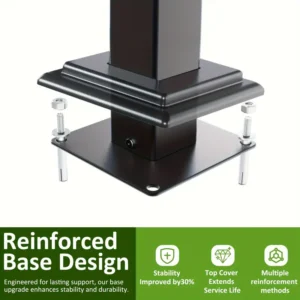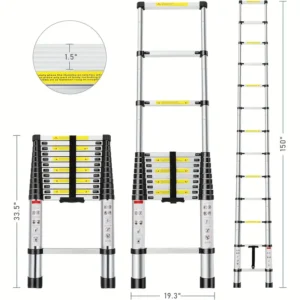Honoring Hard Work: The True Meaning of Labor Day
In the US, Labor Day is a big celebration that recognizes the accomplishments and contributions of American workers. Fall Festival, which falls on the first Monday in September, signifies the end of summer for many and is frequently connected to parades, cookouts, and other events. However, Labor Day’s history and significance are firmly anchored in the late 19th-century labor movement.
The origins of Labor Day can be traced to the Industrial Revolution, which saw the rapid expansion of industry and the establishment of factories. American laborers endured difficult working conditions at this time, frequently putting in 12-hour days seven days a week in hazardous settings. Children as young as five or six were employed for pennies on the dollar in mills, factories, and mines. Child labor was rife. In response to these unfavorable circumstances, the labor movement was born, pushing for safer working conditions, more equitable pay, and more flexible work schedules.
Labor activists first suggested the idea of a holiday to honor workers in the early 1880s. The exact proposer of the holiday is a matter of some debate. Records indicate that the American Federation of Labor’s co-founder, Peter J. McGuire, proposed the idea of a day to honor those “who from rude nature have delved and carved all the grandeur we behold.” Some others think the holiday was proposed in 1882 by Matthew Maguire, a machinist and also the secretary of the Central Labor Union in New York.
Tuesday, September 5, 1882, was the first Labor Day observed in New York City. The Central Labor Union coordinated the event, which featured 10,000 workers marching from City Hall to Union Square on unpaid leave. An important turning point in the labor movement, this show of strength and unity emphasized the value of workers’ rights and contributions to society.
The concept of the first Labor Day quickly spread to other industrial centers in the nation after it proved to be successful. Several states had enacted laws designating Labor Day as a holiday by 1885. On February 21, 1887, Oregon became the first state to formally observe Labor Day. Colorado, Massachusetts, New Jersey, and New York had done the same by the end of the decade. As the campaign gained traction, 23 more states had observed the holiday by 1894.
During the Pullman Strike in 1894, Labor Day history underwent a turning point. In protest of wage cuts and the dismissal of union representatives, employees at the Pullman Palace Car Company in Chicago went on strike. As the strike got worse, Pullman train cars were boycotted nationally, severely disrupting railroad operations. The federal government responded by sending troops to Chicago, which led to violent altercations and the deaths of over a dozen laborers. Following this turmoil, President Grover Cleveland signed a law on June 28, 1894, making Labor Day a national holiday as a show of goodwill with the labor movement.
Labor Day is observed today with a variety of events that honor both its historical significance and current applicability. Parades, which are a major component of the celebration and demonstrate the power and unity of workers, are frequently coordinated by labor unions. The long weekend also signifies the unofficial end of summer for many Americans, who use it to unwind and spend time with friends and family.
Labor Day is a time to commemorate the victories of the labor movement and the continuous fight for workers’ rights. To provide the groundwork for the labor standards we have today, it honors the men and women who battled for just compensation, acceptable work hours, and secure working conditions. It’s crucial to keep in mind the history of Labor Day and the sacrifices made by those who came before us as we celebrate.
To put it simply, Labor Day in the United States is more than just a day off; it is a tribute to the American worker and a celebration of their contributions to the country’s prosperity and welfare. It is a day to reflect on labor rights achievements and to acknowledge ongoing efforts to ensure fair and equitable treatment for all workers.
Celebrate Labor Day with unbeatable deals! Shop now and enjoy exclusive discounts on your favorite items—don’t miss out on these limited-time offers!
Use these offers with applicable options
Carport Metal Carport With Enhanced Base Outdoor Heavy Duty Garage Galvanized Car Shelter For Pickup, Boat, Car And Tractors $407.97
Tegatok 20V Cordless 1/2-Inch Impact Wrench, 320 Nm and 3200 IPM High Torque, Brushless Impact Gun with Battery and Charger, 6 Sockets and Tool Pouch, Wrench Accessory Set, 2.0AH battery, 3-in-1 Automotive Home Electric Impact Wrench $33.69
Tegatok 6-in Mini Chain Saw with 5.8 ft Extendable Rod, 2 Batteries and 2 Chains, 2-IN-1 Cordless Pole Saw, Small Handheld Portable Chainsaw Battery Powered Chain Saw for Cutting Wood Trimming and Woodworking $50.59
1pc Heavy-Duty Electric Hammer Drill, 110V Dual-Purpose Power Tool, Industrial Grade Wall Demolition Tool, Multi-functional Electric Hammer Impact Drill $63.32
Professional Auto Repair Tool Kit Pieces Set with Quick Ratchet Wrench, Chrome Vanadium Steel, Orange—Ideal for Home & Industrial Use $25.03
Portable Welding Machine, 110V Handheld Welder with IGBT Inverter 6 Variable Current Adjustment, Portable ARC Welder Gun Fits for 3/32"-1/8" Wire rods Electric Stick Welder Machine Kit (Grey) $76.47
1pc TRQWH Auto Darkening Welding Helmet with Solar Power, True Color, and Wide Shade Range for Mig, Tig, and Arc Welding Last 10 hours $33.61pay $20,49 new app user only.
Multifunctional Electronic Wall Detector - 5 in 1 Stud, Metal, and Wood Finder with Electronic Measuring Instrument $13.52
1pc Portable Cordless Car Battery Emergency Starter, Tire Air Pump, Air Compressor To Easily Inflate Tires, LED Display, With Flashlight, Mobile Power Supply, Large Capacity Storage Last day $60.53
Plastic Interlocking Deck Tiles, 44 Pack Patio Deck Tiles, 12"x12 Square Waterproof Outdoor Weather Use, Patio Decking Tiles For Poolside Balcony Backyard, Grey/Brown $67.97
60" W Garage Shelving Heavy Duty Storage Shelves 3000LBS Adjustable 5 Tier Metal Shelving Unit For Storage Rack Garage Storage Shelves Industrial Shelf Utility Rack, 60" W X 24" D X 72" H Last day $144.48
Telescoping Ladder 12.5FT, Telescopic Extension Ladder, Aluminum Alloy Folding Ladder Portable Multi-Purpose For Indoor Outdoor Work, Heavy Duty 330 Lbs Load $87.23
Disclaimer
Links included in this page are affiliate links to Temu.com. If you purchase a product or service using the links that I provide, I may receive a small commission. There is no additional charge for you! Thank you for supporting my site.All the prices mentioned above are the current ones .You might find them different on Temu.com, as the discount offers are changeable.
 Click the link https://temu.to/m/ul9da8v22ym to get
Click the link https://temu.to/m/ul9da8v22ym to get  $100 coupon bundle or
$100 coupon bundle or  Enjoy Free Shipping
Enjoy Free Shipping  and Free Returns within 90 days
and Free Returns within 90 days  !
! Hot deals just a click away! Get free gifts at https://temu.to/m/uzengwm4taa and search frf082251 in the Temu App!
Hot deals just a click away! Get free gifts at https://temu.to/m/uzengwm4taa and search frf082251 in the Temu App! 
 https://temu.to/m/ul9da8v22ym
https://temu.to/m/ul9da8v22ym 






















































